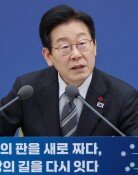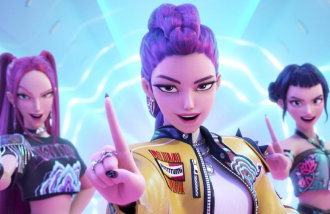Seeking ‘Koi’ fish inspiration in the 22nd National Assembly
Seeking ‘Koi’ fish inspiration in the 22nd National Assembly
Posted February. 27, 2024 07:33,
Updated February. 27, 2024 07:33
Kim Ye-ji, a visually impaired pianist and a notable member of the People Power Party, recently shared an enlightening tale in her book, "Breaking the Aquarium to Go to the Sea." Four years ago, she was approached by the Future Korea Party, an affiliate of the United Future Party, as their first recruit. In her recount, a first meeting with a sitting parliamentarian saw her pegged as a mere figurehead for image-building, with the insinuation that her role was “to merely fill a seat for four years before making a quiet exit.”
Contrary to being just a token figure, Rep. Kim has shattered the misguided notion that a guide dog's companionship suffices for a parliamentarian with visual impairment. Her prowess in leveraging language as a democratic and political tool stands out, with her guide dog, Joy, by her side.
During a recent emergency committee session, Rep. Kim, as a committee member, initiated an impromptu quiz aimed at addressing “improper and discriminatory language.” She posed a thought-provoking question to Han Dong-hoon, the committee chairman, on whether it was more appropriate to say "suffering from a disability" or "having a disability."
"Our party's session truly unfolds in an impromptu manner, without any scripts," Chairman Han remarked. Disability should be viewed as an identity rather than an ailment.
Rep. Kim’s strength lies in fostering an atmosphere of consideration, engaging in natural questions and answers, and conveying messages with precise language. Simply stating, "Do not say 'suffering from a disability'" would not have garnered empathy from the listeners. It would have been the same if she had bombarded with verbal attacks against someone demeaning disabilities in a typical Yeouido-style (Korean political arena) grammar. "When you want to use metaphors or similes, insert your name in the primary and secondary concepts,” she said. “If it doesn't feel bad, you can use it, but if it feels uncomfortable, absolutely do not."
In a memorable parliamentary session last June, Rep. Kim captivated her audience with the tale of the Koi fish, known for its growth adaptability to the environment. They can grow from a mere 10 centimeters in a small fish tank to over 1 meter in the expansive environment of a wide river. She used this as a metaphor for societal constraints, urging for "collective action to dismantle barriers akin to a water tank or aquarium that restrict growth," a call to action that was met with a rare standing ovation.
The rarity of standing ovations in the National Assembly throughout the four-year term of its members exemplifies a wasteful use of taxpayer money. With the 2024 salary for a parliament member set at 160 million won, marking a 1.7% increase from the previous year, the total exceeds 4.5 billion won for all 300 members. If the public witnesses nothing more than acrimonious exchanges during sessions, despite this significant investment of tax revenue, it amounts to a blatant insult to the citizens.
As the general elections approach in just 40 days, reflecting on the 21st National Assembly conjures up a pervasive sense of 'hatred.' Yoon Jae-ok, the floor leader of the People Power Party, has issued a warning that politics is teetering on the brink of a destructive cycle of hate, threatening to obliterate any semblance of normalcy in political discourse. Kim's decision not to seek re-election this year starkly contrasts a controversial figure who has made headlines for using "GSGG," an expression evoking low-level swear words in Korean, as he attempts a political comeback. Despite the inevitable clashes between the ruling and opposition parties, there is a glimmer of hope that an increase in members dedicated to respectful and meaningful discourse could herald a significant improvement in the National Assembly's function and reputation.




![“기둥에 닿을 듯” 극강의 ‘매너 주차’…웃음과 감동[e글e글]](https://dimg.donga.com/c/138/175/90/1/wps/NEWS/IMAGE/2025/12/12/132956960.3.jpg)


